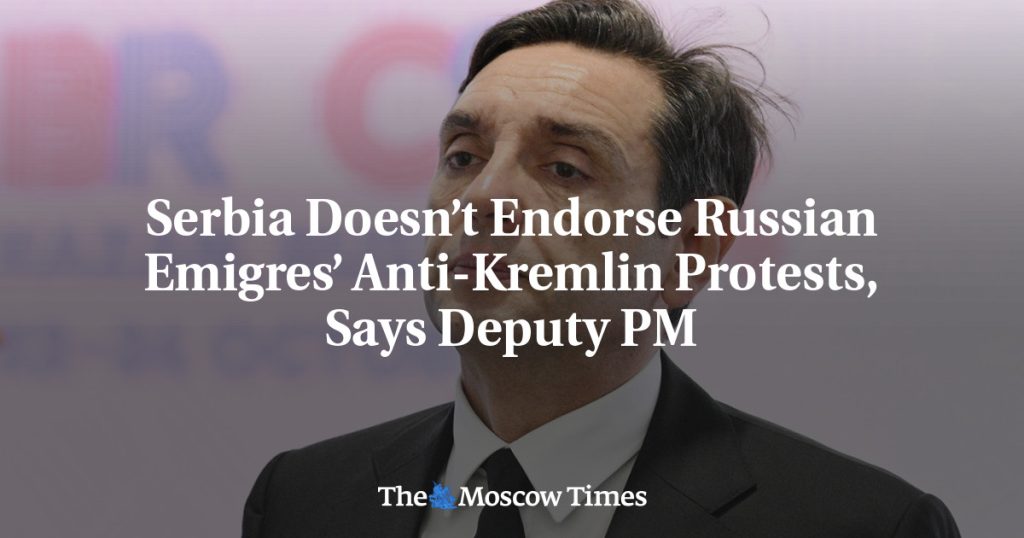Serbia’s Deputy Prime Minister stated that the government does not support Russian emigres living in the country who stage protests against the Kremlin. Tens of thousands of Russians sought refuge in Serbia after President Putin’s 2022 invasion of Ukraine and subsequent troop mobilization. There are approximately 150,000 Russians residing in Serbia without the need for a visa. The Deputy Prime Minister expressed concerns about some Russians engaging in political activities and protests against the Russian government from Serbian soil, urging them to refrain from such actions.
Deputy Prime Minister Vulin emphasized that Serbia maintains a friendly relationship with Russia and the Kremlin, but it will not allow itself to be used as a tool against President Putin or the Russian government. He encouraged Russian citizens to come and live in Serbia but advised them to refrain from engaging in politics. This statement followed the reported order for an anti-Kremlin activist Anton Bobryshev to leave the country due to national security risks. Bobryshev, who had resided in Serbia for eight years, believed the decision was politically motivated amidst tensions between Serbia and Russia.
Despite historically close ties between Serbia and Russia, particularly under Prime Minister Vucic’s leadership, Serbia has condemned Russia’s actions in Ukraine and sought to limit direct contact with the Kremlin. The EU has cautioned Serbia that maintaining strong ties with Russia could hamper its aspiration to join the bloc. Deputy Prime Minister Vulin represented Serbia at the BRICS summit in Kazan after Prime Minister Vucic cited scheduling conflicts as the reason for his absence from the event.
Serbia’s stance on Russian emigres and its commitment to maintaining a friendly relationship with Russia has drawn international attention. The Moscow Times, an independent journalism platform facing challenges in Russia, highlighted the complexities of this issue. The publication emphasized that independent journalism is crucial in the face of repression, urging readers to support their work. The Russian government’s crackdown on media and attempts to silence dissent further underscore the importance of independent reporting.
The situation in Serbia reflects a delicate balance between maintaining diplomatic ties with Russia while upholding democratic values and principles. The government’s message to Russian emigres underscores the importance of respecting host country laws and political sensitivities. As Serbia navigates its foreign policy in the context of regional and global geopolitics, it faces scrutiny from both domestic and international observers. The broader implications of Serbia’s relationship with Russia and its stance on political activism highlight the complexities of foreign policy decision-making in a rapidly changing world.














